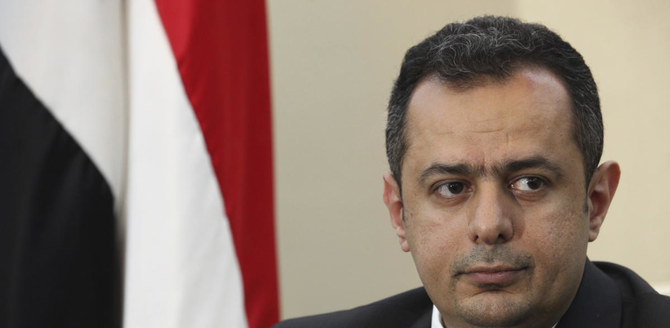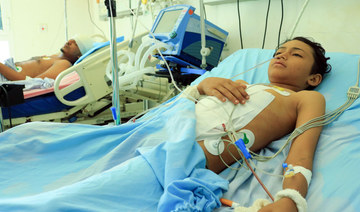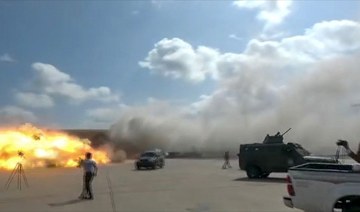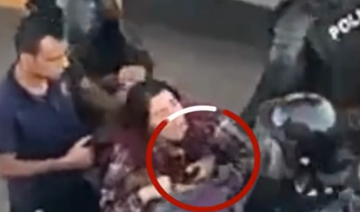CAIRO: Yemen’s prime minister on Saturday said that a missile attack on the airport in Aden was meant “to eliminate” the country’s new government as it arrived in the key southern city — a daring assault which he blamed on the Iran-backed Houthi militia.
Prime Minister Maeen Abdulmalik Saeed spoke to The Associated Press in an interview conducted at his office in the Mashiq Palace in Aden. It was the leader’s first interview with international media after he survived Wednesday’s attack that killed at least 25 people and wounded 110 others.
“It’s a major terrorist attack that was meant to eliminate the government,” the premier said. “It was a message against peace and stability in Yemen.”
Saeed repeated his government’s accusations that Yemen’s Houthi militia was responsible for the missile attack on the airport and a drone assault on the palace, shortly after the premier and his Cabinet were transferred there.
The new Yemeni government was formed in December to end a dangerous political rift with southern separatists.
He said that the “techniques” used in the airport missile attack were hallmarks of the Houthis’ strategy.
The attack took place moments after a plane carrying Saeed and his Cabinet members landed at the airport. AP footage from the scene at Aden’s airport showed members of the government delegation disembarking as the blast shook the tarmac, with many ministers rushing back inside the plane or running down the stairs, seeking shelter.
Saeed said three precision-guided missiles had struck the facility, targeting his plane, the arrival hall and the VIP lounge of the airport.
“The guidance accuracy was great. The operation was huge,” he said.
The prime minister said Yemeni investigators have collected the remains of the missiles and that experts from the Arab coalition and the US would help determine the type and origins of the missiles.
Saeed and his newly formed Cabinet were returning to Yemen a week after they were sworn in before Yemeni President Abed Rabbo Mansour Hadi in Saudi Arabia’s capital, Riyadh, where the embattled leader resides.
The Cabinet reshuffle was part of a power-sharing deal between the Saudi-backed Hadi and the secessionist Southern Transitional Council, an umbrella group of militias seeking to restore an independent southern Yemen, which existed from 1967 until unification in 1990.
Saeed, the prime minister, said his government would prioritize “security and stability” in government-held areas after months of infighting between Hadi’s government and the STC.
“Whatever the challenges in Aden, the government remains,” he said.
He also pointed to “huge” economic challenges as being the focus of his government.
Aden’s airport is expected to reopen Sunday, Transportation Minister Abdel-Salam Hamied announced while visiting the facility.
The conflict in the Arab world’s most impoverished nation began when the Houthis captured the capital of Sanaa in 2014, forcing Hadi’s government to flee.
























